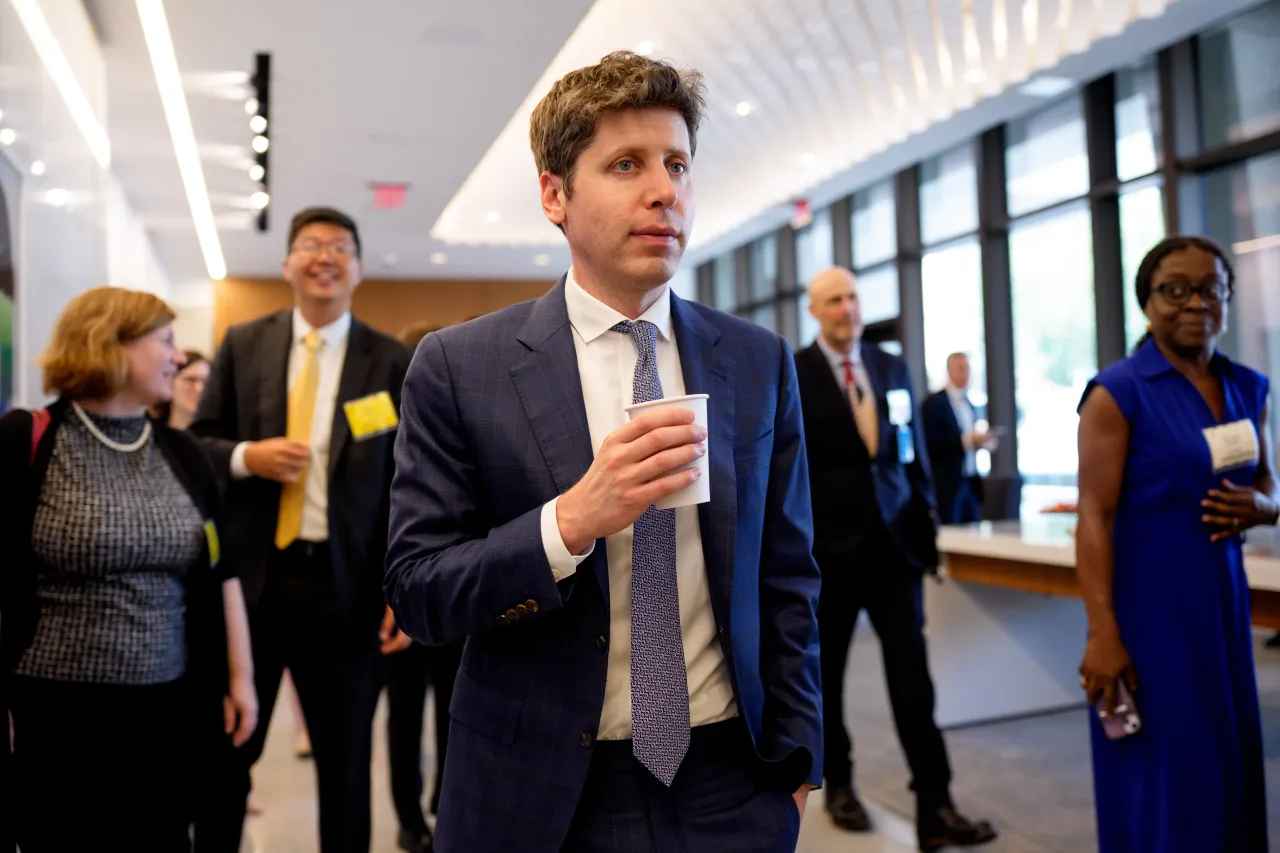Advertisement|Remove ads.
OpenAI's Pledge To Stay In California Helped Clear Path For Potential 2027 IPO: Report

- OpenAI CEO Sam Altman reportedly spoke with California Attorney General Rob Bonta two weeks ago, assuring him that the company plans to continue and expand its operations in the state.
- The AI major on Tuesday announced it had completed its shift to a for-profit structure, paving the way for fundraising and a potential IPO in 2027.
- OpenAI faced opposition to its plans, with critics saying it violates its nonprofit mission and lawmakers concerned about its commitment to AI safety.
OpenAI has assured state officials that it will stay in California and expand its presence there, as part of other assurances that helped green-light its corporate restructuring plan, according to a Wall Street Journal report detailing closed-door discussions between CEO Sam Altman and California Attorney General Rob Bonta.
The new corporate structure paves the way for a blockbuster public listing that could arrive as soon as 2027, potentially one of the biggest in history, the Journal reported, citing people familiar with those discussions.
OpenAI on Tuesday announced that it had completed its shift to a for-profit company. Under the new structure, the non-profit OpenAI Foundation will have legal control over a public benefit corporation called OpenAI Group, which is free to raise funding. OpenAI Foundation will own 26% stake in the for-profit entity, Microsoft will own 27%, and the remaining will be held by investors and employees.
The WSJ reported how a call between Altman and Bonta proved fruitful. Atlman reportedly said he wanted OpenAI to be based in California and that he would neither leave the state nor sue the state if Bonta blocked the company’s restructuring. OpenAI had spent months making the case that it was the economic heart of California, a subtle hint that losing the company would mean the flight of jobs and capital.
According to the report, California’s attorney general — who, alongside Delaware Attorney General Kathy Jennings, had been examining concerns over OpenAI’s safety practices — was prepared to file a lawsuit but ultimately refrained after reaching several key agreements with the company.
They included receiving at least three weeks’ notice before the OpenAI nonprofit agreed to any major changes to the public-benefit company’s structure or mission, and guarantees over the nonprofit board’s independence.
In recent weeks, San Francisco Mayor Daniel Lurie also called Bonta to emphasize that OpenAI remains in San Francisco.
With its restructuring, OpenAI has effectively overcome opposition from labor unions, nonprofits, and corporate rivals, which argued that the conversion was violating its charitable mission.
For updates and corrections, email newsroom[at]stocktwits[dot]com.
Read Next: Caesars Says Poor Uptake In Las Vegas Weighed On Q3 Results, Shares Drop











/filters:format(webp)https://news.stocktwits-cdn.com/large_Getty_Images_2264020227_jpg_4d7420bef3.webp)
/filters:format(webp)https://news.stocktwits-cdn.com/Anushka_Basu_make_me_smile_in_the_picture_b92832aa_af59_4141_aacc_4180d2241ba8_1_2_png_1086e0ed8c.webp)
/filters:format(webp)https://news.stocktwits-cdn.com/large_Getty_Images_2259210190_jpg_d48bbe3269.webp)
/filters:format(webp)https://news.stocktwits-cdn.com/large_Getty_Images_1396534113_jpg_b0e09f299b.webp)
/filters:format(webp)https://news.stocktwits-cdn.com/large_Jane_Street_3ac3fb6443.webp)
/filters:format(webp)https://news.stocktwits-cdn.com/large_Truth_social_5bfbc7389b.webp)
/filters:format(webp)https://news.stocktwits-cdn.com/large_Getty_Images_2221283194_jpg_8178c730a4.webp)